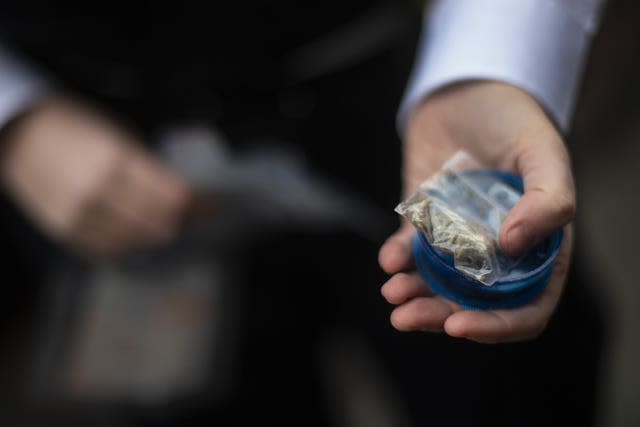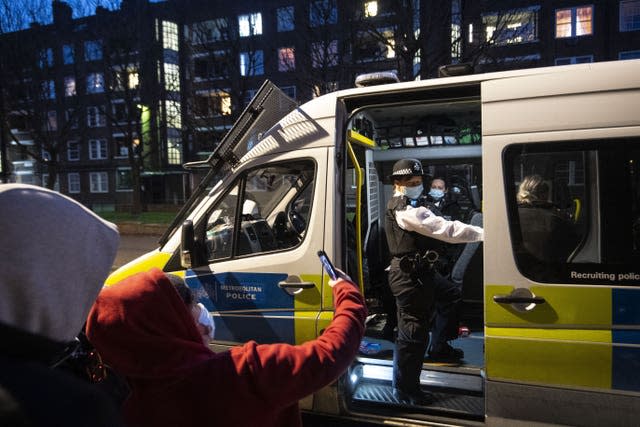Police chief defends stop and search but acknowledges disproportionality
Continued disproportionality in the use of stop and search could risk diminishing trust and confidence among black people, a police chief has warned.
Deputy Assistant Commissioner Amanda Pearson, who leads the National Police Chiefs’ Council’s work on stop and search, told BBC Radio 5 Live on Wednesday forces were “committed to improving the way we do things”.
It comes after a documentary about the police tactic, which allows officers to search people and vehicles for drugs or weapons without a warrant, was aired on Channel 4.
The Truth About Police Stop And Search, fronted by The One Show presenter and former footballer Jermaine Jenas, features interviews with 40 black men and teenagers about their experiences of stop and search in England.
Mr Jenas, who played for Tottenham Hotspur, told how he was just 10 years old when he was first stopped by police and, later in life, found this happened “all the time” on his way to training once had had moved to London.

When asked by radio presenter Nihal Arthanayake whether black communities have confidence in the way police use stop and search, Ms Pearson said: “We do recognise that there is disproportionately in respect of stop and search, in particular with members of the black community.
“And, of course, that ongoing disproportionately has the risk that it will threaten to diminish trust and confidence, particularly from the black community, within policing.”
National surveys conducted to assess trust and confidence suggested the majority of those stopped and searched felt they were treated with politeness, respect and the procedure was explained.
But work is ongoing to try to identify and address problems, she added.
Ms Pearson said: “Unfortunately crime doesn’t fall equally across communities as we know.
“And sadly many young black children are more likely to be victims of serious violence and homicide and therefore, we do see that forces will focus their policing efforts in those areas where children are most at risk of being victims to those crimes and part of those policing efforts will include stop and search in those areas.”
There are also wider inequalities in society, in areas like housing, employment and education, that contribute to problem, she added.

But she insisted stop and search was still effective in disrupting drugs rings, taking weapons off the streets and protecting children, highlighting that nearly 11,000 weapons were seized in stop and searches in the last year.
Although she did acknowledge the tactic results in a national arrest rate of only around 10% and that better data was needed to “target where our problems are”.
She added: “I’m not going to diminish or underestimate the impact being stopped and searched has had on individuals and communities.”
Police carried out the highest number of stop and searches in seven years, with the figure rising by more than 50% in 12 months, official statistics published in October showed.
Earlier this year, more than 35 years on from the introduction of stop-and-search laws, police watchdog Her Majesty’s Inspectorate of Constabulary and Fire and Rescue Services (HMICFRS) found forces were still unable to explain the disproportionate use of the powers.
Last week campaigners called for a crackdown on the powers amid fears they could be extended under the controversial Police, Crime, Sentencing and Courts Bill.


